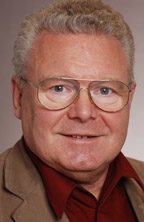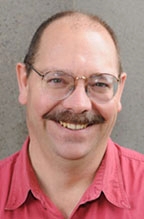
Remember the exciting news article published in November of 2009 in Science Daily about how an orchid species on the Chinese island of Hainan "fools its hornet pollinator by issuing a chemical that honey bees use to send an alarm?"
The research was first published in Current Biology, a Cell Press publication.
"The discovery explains why the hornets, which capture honey bees to serve as food for their larvae, have been observed to literally pounce on the rewardless Dendrobium sinense flowers," the Science Daily author wrote.
Can you imagine? Hornets "detect" one of their favorite foods--honey bees--and they pounce on the flower and come up empty-handed or "empty-mouthed?"
The orchids produce a deceptive chemical, a compound called Z-11-eicosen-1-ol, described as "a rarity even in the insect world."
One of the researchers involved in this study--and hundreds of other insect communication studies--is world-renowned chemical ecologist Wittko Francke (top photo) of the University of Hamburg, Germany.
And now he's coming to the University of California, Davis, to present a seminar.
Francke will speak on "Insect Semiochemicals: Structural Principles and Evolution" at a UC Davis Department of Entomology seminar on Wednesday, Dec. 8 from 12:10 to 1 p.m. in 122 Briggs Hall, off Kleiber Hall Drive. He'll be introduced by host and fellow chemical ecologist Steve Seybold of the USDA Forest Service, Pacific Southwest Research Station, Davis, and an affiliate of the UC Davis Department of Entomology.

"Nearly everyone in the field has collaborated with him at some level; he has been a consummate mentor to younger chemical ecologists and has always been generous with his time, intellect, and chemical skills to everyone in that community," Seybold said. "He is remarkably brilliant in that he sees patterns in the make-up and synthesis of bio-organic compounds that most biologists, and even many chemists, may overlook."
Francke’s talk, open to the public, will be webcast live and then archived on the Department of Entomology's website. This is the last in the series of the department’s fall seminars.
Attached Images:

Yellowjacket